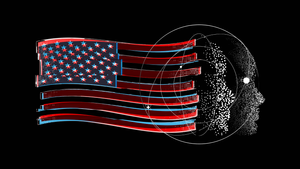US Congress member Adam Schiff has proposed a new law that would force AI companies to disclose what copyright protected works they have used to train their generative AI models. The obligation would apply to existing and future models, and failure to comply would result in fines. The proposals have been widely welcomed by the music industry, with the RIAA applauding what it sees as a solution to an “urgent and foundational issue”.
“AI has the disruptive potential of changing our economy, our political system, and our day-to-day lives”, says Schiff, a Democrat member of the House Of Representatives. "We must balance the immense potential of AI with the crucial need for ethical guidelines and protections”.
“My Generative AI Copyright Disclosure Act is a pivotal step in this direction”, he adds. “It champions innovation while safeguarding the rights and contributions of creators, ensuring they are aware when their work contributes to AI training datasets. This is about respecting creativity in the age of AI and marrying technological progress with fairness”.
There is an ongoing dispute over the obligations of AI companies that use existing content to train their models which has resulted in lots of litigation and lobbying.
The creative industries - including the music industry - have two main demands, that AI companies must get permission before using any content as part of their training processes, and that they must also declare what content and data has been used. Obviously, without the transparency obligation, copyright owners wouldn't know which AI companies require a licence.
The creative industries insist that current copyright law obliges AI companies to get permission to train their models with copyright protected works. Many AI companies do not agree and various lawsuits are underway which will see the courts interpret what the law says in this domain. However, regarding the transparency obligations, that will probably require new rules. For example, the recently passed EU AI Act does include some transparency provisions.
Schiff's proposals would insert a transparency obligation into US law. AI companies would be obliged to submit a full list of all copyright protected works used to train an AI model with the US Copyright Office no later than 30 days before making the model available to the public.
A wide assortment of organisations representing the creative and copyright industries are backing the proposals, including - in music - the Recording Industry Association Of America, Society Of Composers And Lyricists, National Music Publishers Association, Recording Academy, Nashville Songwriters Association International, Songwriters Of North America, Black Music Action Coalition, Music Artist Coalition, the American Association Of Independent Music, and collecting society ASCAP.
Says RIAA Chief Legal Officer Ken Doroshow, “Any effective regulatory regime for AI must start with one of the most fundamental building blocks of effective enforcement of creators’ rights - comprehensive and transparent record-keeping. RIAA applauds Congressman Schiff for leading on this urgent and foundational issue”.

